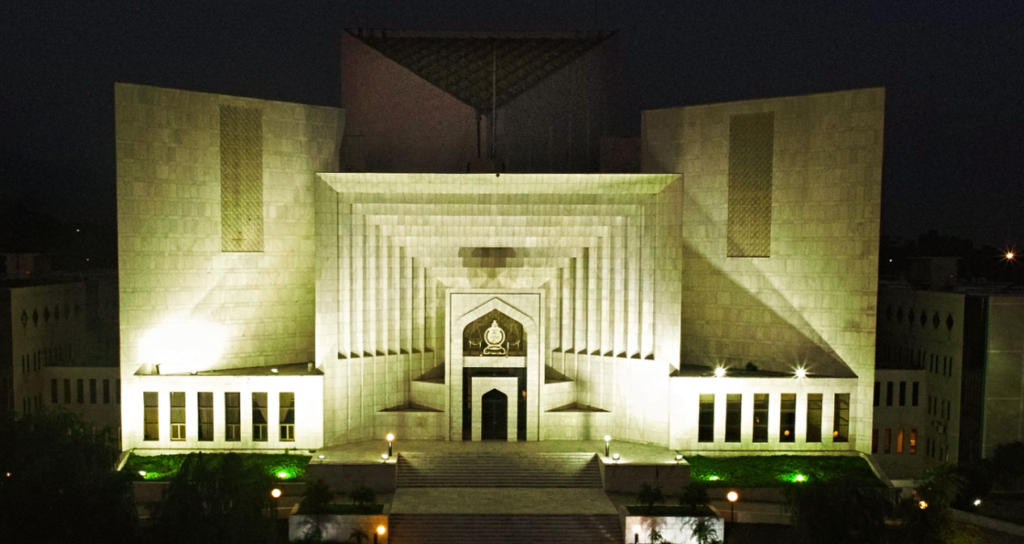“Pakistan Judiciary Crisis Deepens” as the government passed a controversial amendment to the constitution that many accuse of undermining the judiciary’s independence and further destabilizing the country’s democracy. During a secretive, late-night parliamentary session, lawmakers enacted the 26th constitutional amendment, sparking outrage over claims that authorities abducted and intimidated them to secure their votes in favour of the bill.
The ruling coalition, led by Prime Minister Shehbaz Sharif’s Pakistan Muslim League Nawaz (PML-N) and the Pakistan People’s Party, had aggressively pushed for the amendment. The new legislation alters the process for senior judicial appointments, most notably granting the government the power to select the chief justice, Pakistan’s top judge, who often presides over the nation’s most politically charged cases. Critics argue that this shift severely compromises judicial independence.
The “International Commission of Jurists (ICJ)’’ condemned the amendment, describing it as a “blow to judicial independence, the rule of law, and human rights protection.”
Allegations of Intimidation and Coercion
Previously, the government failed to pass the amendment due to insufficient support in the National Assembly. This time, however, it succeeded amid accusations from opposition parties of coercion and misconduct. Opposition leaders claim that someone subjected parliamentarians to intimidation, including abductions, torture, and bribery, to ensure they voted in favour of the amendment.
Pakistan Judiciary Crisis Deepens Amid Military Influence
The coalition government, which took power in February after an election marred by allegations of fraud, faces accusations of receiving backing from Pakistan’s powerful military establishment. Former Prime Minister Imran Khan’s party, Pakistan Tehreek-e-Insaf (PTI), claims that the amendment aims to prevent an independent judiciary from investigating allegations of election rigging.
Salman Akram Raja, PTI’s general secretary, argued that the amendment allows the government to control the judiciary and ensures that senior judges align with its agenda, particularly in cases involving Khan and PTI. He further alleged that Pakistan’s military establishment orchestrated the changes, citing recent incidents in which military authorities reportedly pressured senior judges not to issue favourable rulings for Khan.
“This is the end of judicial independence,” Raja stated, as PTI prepares for mass protests against the amendment.
Government Denies Political Motives
Law Minister Azam Nazeer Tarar defended the amendment, stating that the parliamentary committee responsible for selecting the chief justice will include representation from all major parties, including the opposition. “Tarar said the amendments are constitutional and aim to promote a balanced judiciary, rejecting claims that the changes serve political interests.”
Concerns Over Judicial Independence
Concerns over judicial independence in Pakistan are long-standing, as the judiciary has historically been accused of aligning with the military’s interests. However, the courts have also taken independent stances on human rights and media freedom issues.
The “Pakistan Judiciary Crisis Deepens” further as lawyers and experts warn that this amendment entrenches government influence over the courts. Salahuddin Ahmed, a senior lawyer, criticized the changes, saying they “permanently place the Supreme Court and high courts under political control.”
He added, “This is a decisive step toward authoritarianism and erodes the judiciary’s essential role in holding the government accountable.”
Former Prime Minister Shahid Khaqan Abbasi echoed these concerns, calling the amendment “the subjugation of the judiciary by the government. If a judge refuses to cooperate with the government, they will simply be removed,” Abbasi warned.
The passing of this amendment has intensified Pakistan’s already volatile political climate and raised significant concerns about the future of judicial independence in the country.



